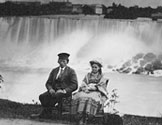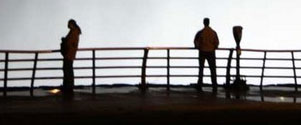

|
||||||||||||||||||||||||||||||||||||||||||
|
| ||||||||||||||||||||||||||||||||||||||||||
 |
 |
 |
 |
 The Upson Company 
The Upson name is well known in Niagara County history. While testing the entrepreneurial waters, Charles and Edward Upson (sons of William) established the Upson Brothers Company, dealers of bicycles in the late 1800s. In 1899, the store closed and Edward opened a store selling cameras and Charles became employed at the Tonawanda Paper Company and later the Beaverboard Company of Buffalo. Eventually, Charles developed ideas on how to produce a better wallboard than what was being produced in 1910, so he formed the Upson Company in an old shed in Lowertown with no heat which would became the first factory. An old kitchen table became the first office desk and a heater was put under the table to keep the workers’ feet warm. Upson wallboard, kiln dried with four plies, proved to be much better than similar product. By 1921 the Upson Company had become the world’s largest wallboard factory under one roof. Additional plants were located in New Orleans, El Segundo, Elkhart and St. Catharine’s. However, when the Great Depression struck in 1929, commerce came to a stand still. Housing sales dropped and Upson workers were in danger of losing their jobs. Hoping to keep their employees in work, the company looked for lower price products to sell, which lead them to examine the jigsaw puzzle fad. The company began producing TUCO (“T”he “U”pson “CO”) puzzles by pasting pictures on their 3/16” Upson panels. Originally non-interlocking, the puzzles were packaged in plain orange boxes and sold to S.S. Kresge in Detroit who agreed to put them in a few of their stores. The puzzles sold for 69 cents instead of the competition’s puzzles that sold for over three dollars. TUCO puzzles were an immediate success. In fact, by 1933 the company was so successful that it shipped 50,000 puzzles each day. By 1971, the company began a modernization of its Stevens Street plant but encountered equipment problems, labor problems, and just about every kind of problem that could be encountered. In an effort to stay afloat, Upson sold its puzzle division in the late 1970s. With downsizing and other business concerns, it came as no real surprise in 1984 when the local Upson Company sold its operations to the Domtar Company, a Canadian firm headquartered in Montreal. Douglas Farley, Director Ann Marie Linnabery Erie Canal Discover Center 24 Church St. Lockport NY 14094 716.439.0431 CanalDiscovery@aol.com www.NiagaraHistory.org |